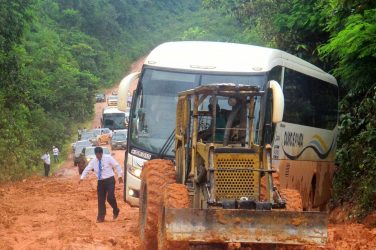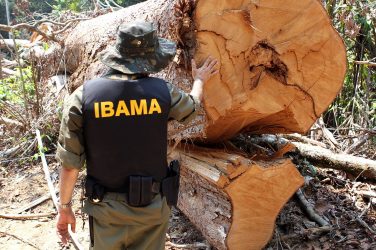The International Trade Union Confederation (ITUC) has welcomed a call from the International Labor Organization’s (ILO) Brazil office for land redistribution to combat forced labor in the country, following a landmark ruling by the Inter-American Court on Human Rights holding the government responsible for providing compensation to 125 slaves held at a ranch in Pará State.
Sharan Burrow, ITUC General Secretary, said: “Powerful landholders are responsible for slavery in Brazil, and this judgement makes the authorities accountable for protecting workers from forced labor. With the government of Michel Temer rolling back labor laws and enforcement, even more people risk being trapped in forced labor.
“Meanwhile the perpetrators, including actual members of parliament, are escaping justice. Fair distribution of land and the full application of the rule of law are crucial to ending slavery in Brazil.”
For decades, Brazilian workers, frequently indigenous or of African descent, have been victimized and kept in extreme poverty by landholders in the country’s Northeast.
During the presidencies of Luiz Inácio Lula da Silva and Dilma Rousseff, more than 44,000 people were freed from slave-like conditions. However, since Rousseff was deposed, political will to end forced labor has been absent.
In 2014, the agribusiness lobby succeeded in getting the Supreme Court to strike down the publication of a “dirty list” of companies profiting from slavery, and members of Brazil’s Congress who were prominent in the deposing of Rousseff face credible allegations of responsibility for slavery themselves.
Congress member Beto Mansur, a strong opponent of Rousseff, faces charges of keeping 46 people including several children in slave-like conditions in a case which is being reviewed by the Supreme Court on procedural grounds, while newly-appointed member of Congress Nelson Nahim was recently released from prison after serving just four months of a 12-year sentence for involvement in sex slavery involving victims as young as 8 years old.
Altogether, 30 out of Brazil’s 81 senators and 130 of the lower house’s 513 members are involved in investigations under the authority of the Supreme Court.
Corruption investigations into politicians close to Michel Temer, and possibly into Temer himself, are expected to be scaled back after the death on 19 January of Supreme Court judge Teori Zavascki, who was overseeing the investigations. Zavascki died when the light aircraft in which he was traveling crashed.
“The work of institutions like the Inter-American Court of Human Rights is indispensable when the judicial and political systems are failing to uphold the rule of law, as is the case today in Brazil. The ITUC will continue its engagement with these bodies to promote and defend the rights of all workers,” said Burrow.
The ruling in the case known as Fazenda Brasil Verde, published by the Court on December 15, is the first to apply Article 6 of the American Convention of Human Rights prohibiting forced labor. The ITUC filed an amicus curiae brief with the Court in March 2016, and the Court adopted the arguments in the ITUC brief.
The ITUC represents 181 million workers in 163 countries and territories and has 340 national affiliates.
Over 1,000 Rescued
Brazil’s Ministry of Labor and Social Security rescued 1,010 people working under slavery conditions in 2015. According to a ministry statement released to mark the National Day Against Forced Labor, which is observed on January 28, l40 operations were carried out in 2005 to curb degrading labor.
According to the ministry, most of the slave-like labor practices in Brazil were found in urban areas, where 61% of the cases were concentrated (607 workers found in 85 inspection operations). In the 55 inspection visits carried out in rural areas, 403 workers were found in these conditions.
According to the chair of the National Labor Inspectors’ Union, Carlos Silva, textiles and construction were the industries in which cases were most common. “More recently, we have also identified the problem in maritime activities, with degrading labor conditions found on cruise ships, which also use foreign labor,” he added.
For Silva, one of the modern challenges to addressing slavery is the strong political and economic influence of businesses.
“The anti-slavery struggles reached urban areas, prompting a strong response from the capital, to the point of threatening two important tools available to us.”
One of the threats, he said, is a bill that “narrows down the definition of slave labor, excluding all degrading labor and exhausting work hours. This is a serious setback.”
The other threat is the non-disclosure of a blacklist of businesses that exploit slave labor. “[Ricardo] Lewandowski, then-Chief Justice of the Supreme Court, claimed that there is no sufficient legal and constitutional basis to disclose the blacklist, a tool that has been internationally recognized by the UN as a best practice to be emulated by all countries in the fight to eradicate slavery,” the labor inspector said.
The most important advance in recent years according to Silva was the enactment of a constitutional amendment introducing forfeiture of properties where slavery has been proven to exist.
Carlos Silva thinks Brazil needs to subject the practice of exacting forced labor to heavier financial consequences, “up to a level that makes the risk of exploiting it for profit seriously unattractive to employers.”
“The existing fines on the practice are too mild, and the shortage of labor inspectors encourages many employers to take a chance on impunity,” he said.
According to the Ministry of Labor, the mining business concentrated 31.05% of the workers rescued last year, 313 workers. Construction accounted for 18.55% of the total (187 workers). Next were agriculture and livestock farming, with respectively 15.18% and 14.29% of the total number of people found working under slave-like conditions.
The 28th of January was chosen as Brazil’s National Labor Inspection Auditors’ Day and National Day Against Forced Labor in memory of two labor inspectors and a driver who were murdered in 2004 while investigating reports of forced labor in Unaí, in the southeastern state of Minas Gerais.












